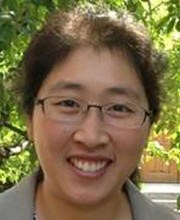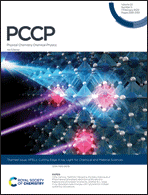PCCP Bunsentagung 2020: Understanding Dispersion Interactions in Molecular Chemistry themed collection now online!
We are delighted to announce that the Physical Chemistry Chemical Physics (PCCP) themed collection Bunsentagung 2020: Understanding Dispersion Interactions in Molecular Chemistry is now online and free to access until the end of August 2021.
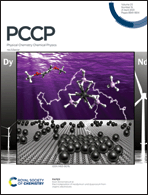 Bunsentagung 2020 focuses on dispersion interactions and their multifold manifestations in chemistry. Dispersion is the driving force for molecular aggregation that plays a key role in the thermodynamic stability of (meta)stable structures, molecular recognition, chemical selectivity through transition-state stabilization, protein folding, enzyme catalysis, and many more. Despite the pioneering work of London and others in the 1930s, our understanding of dispersion interactions only recently has become much better.
Bunsentagung 2020 focuses on dispersion interactions and their multifold manifestations in chemistry. Dispersion is the driving force for molecular aggregation that plays a key role in the thermodynamic stability of (meta)stable structures, molecular recognition, chemical selectivity through transition-state stabilization, protein folding, enzyme catalysis, and many more. Despite the pioneering work of London and others in the 1930s, our understanding of dispersion interactions only recently has become much better.
Guest Edited by Professor Jürgen Janek, Professor Peter R. Schreiner and Professor Martin A. Suhm, this collection highlights the progress in a rapidly developing field encompassing both experiment and theory. We hope you enjoy reading the articles. Please get in touch if you have any questions about this themed collection or PCCP.
Read the full issue online
It includes:
Editorial
Understanding dispersion interactions in molecular chemistry
Jürgen Janek, Peter R. Schreiner and Martin A. Suhm
Phys. Chem. Chem. Phys., 2021, 23, 8960-8961. DOI: 10.1039/D0CP90285C
Paper
Understanding benzyl alcohol aggregation by chiral modification: the pairing step
Robert Medel and Martin A. Suhm
Phys. Chem. Chem. Phys., 2020, 22, 25538-25551. DOI: 10.1039/D0CP04825A
Paper
Dissecting intermolecular interactions in the condensed phase of ibuprofen and related compounds: the specific role and quantification of hydrogen bonding and dispersion forces
V. N. Emel’yanenko, P. Stange, J. Feder-Kubis, S. P. Verevkin and R. Ludwig
Phys. Chem. Chem. Phys., 2020, 22, 4896-4904. DOI: 10.1039/C9CP06641A
Paper
The influence of intermolecular coupling on electron and ion transport in differently substituted phthalocyanine thin films as electrochromic materials: a chemistry application of the Goldilocks principle
Thi Hai Quyen Nguyen, Marius Pelmuş, Christopher Colomier, Sergiu M. Gorun and Derck Schlettwein
Phys. Chem. Chem. Phys., 2020, 22, 7699-7709. DOI: 10.1039/C9CP06709D
Paper
Structures and internal dynamics of diphenylether and its aggregates with water
M. Fatima, D. Maué, C. Pérez, D. S. Tikhonov, D. Bernhard, A. Stamm, C. Medcraft, M. Gerhards and M. Schnell
Phys. Chem. Chem. Phys., 2020, 22, 27966-27978. DOI: 10.1039/D0CP04104A













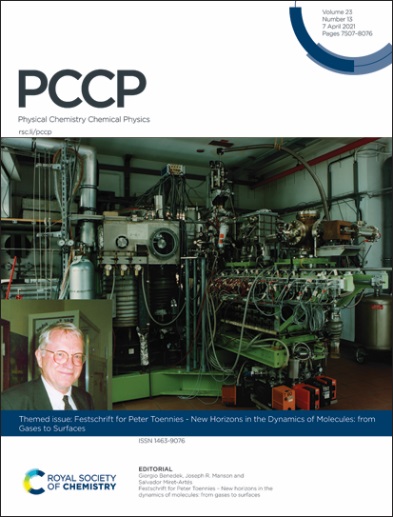
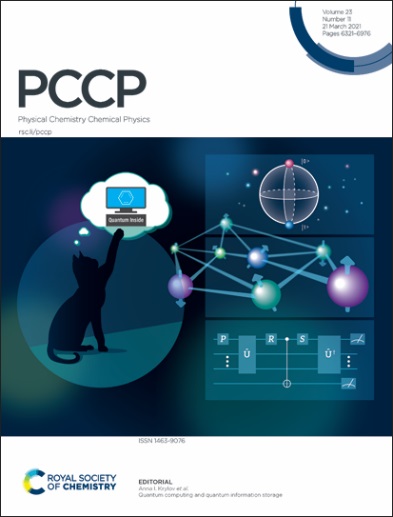

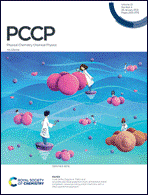
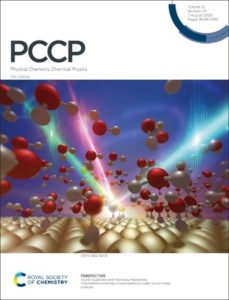
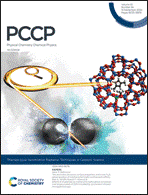
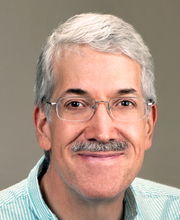
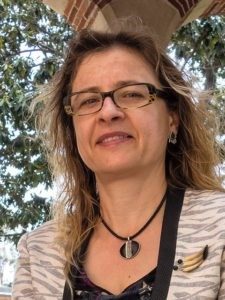 Anna Krylov (Associate Editor, PCCP)
Anna Krylov (Associate Editor, PCCP)